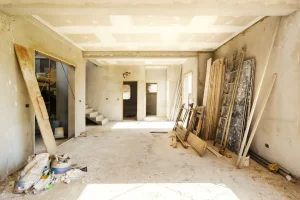Working in sheds and garages during the pandemic poses an insurance risk

Why do people choose to work in a Shoffice ?
Shoffice is a word formed from “shed” and “office”, the Shoffice is therefore a wooden shed, placed at the back of the garden. It combines both the storage function for gardening equipment and that of a workspace away from the household.
One in ten people, according to Aviva’s survey, are working in a converted shed, garage, or summer house. This is predicted to increase by 13 percent.
Also, according to the survey, 43 percent of the 1 400 respondents plan to use the shoffices against 34% currently. So this means that home offices may be likely to become more common. On the other hand, the number of people who work on their beds may drop from 14 percent now to a still-noteworthy 11 percent in the future.
The shoffices are becoming more and more popular and to have a luxury cabin, some people spend a lot of money. And one of the most popular search terms on Rightmove which is a real estate website is the word “garage”.
According to Gareth Hemming, general manager of personal lines at Aviva, “Flexible working and home-working practices have been around for some time, but they have come into their own in the last year. While home-working is not the choice of every individual, we are likely to see more flexibility as a basic benchmark for the future, with many people working remotely, at least some of the time.”
Is working in the shoffice covered by insurance?
Working from home is stressful for some people. One in five people feels this way, according to the survey. This can grow depending on the person’s industry. Some businesses are set up at home, that is, without insurance coverage.
Defaqto which is an independent financial information company that does the analysis of this sector in their statement said that failure to let their insurer know of the way of work can create a risk of workers’ compensation insurance being invalidated if it creates additional risks.
For example, specialised insurance is needed for artisans who use fire or scorching tools or cooks who work from home who sell their creations. This can protect them from the risk of food poisoning or fire.
Although some insurers allow people who work from home to lengthen their coverage without charging other additional fees, some have to pay higher premiums or purchase new insurance policies or due to the additional risk.
A risk that the equipment is expensive and may exceed the insurance limits of existing policies may also arise. This is in case of theft or damage.

The opinion of a professional
Brian Brown, a consumer credit expert declared that the pandemic has caused many people to rethink their jobs and develop a business hobby. He also said it was fantastic to see such an entrepreneurial spirit, but running a home business is not without risk and should not be undertaken lightly.
According to him,” Standard home insurance products are designed to cover your property for domestic use and not as a business, although most will allow you to do office work from home.
If you are using your home as a business premise, storing stock and equipment at home, or having customers visit, you could invalidate your policy.”
So he suggested discussing business plans with insurers, as they might think about getting an insurance policy for those who work from home, with SMEs insurance brokers who will be able to provide advice.







